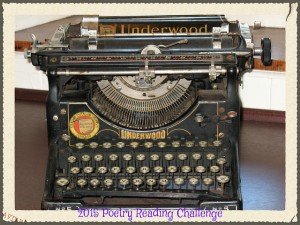Source: Milkweed Editions
Paperback, 71 pgs
I am an Amazon Affiliate
Crow-Work by Eric Pankey is a collection that pushes the boundaries, rooting itself in the now to seek out the past and more. The past is so far back and unreachable, yet many of us stretch ourselves as far as we can to reach the past only to fail. Returning again and again to the birds and the fox, Pankey weaves verse anchored in nature so that it can reach out for artistic beauty and something more ethereal. Like the crow cleaning up after death and failures, Pankey is searching through the detritus looking for the something of beauty or hope. There is a shadow hovering in this collection, weighing down the narration — a sense of depression that lingers. In “Crow-Work,” the crows are “scavenging” what they can efficiently after thousands of innocents have been slaughtered by a comet.
Pankey examines the fault of memory and its inability to maintain the true nature of the past, but there is always that longing for something that has been gone. “If he’s my brother he’s a faded forgery,/Fleshed out in dust motes, an embodied loss,” the narrator explains in “My Brother’s Ghost.” And in “Depth of Field,” “Once, to my footfall/On an icy wooden bridge/Carp surfaced, expecting to be fed,/Hovered a moment,/Then descended into the murk.//” The narrator is looking for that thing of beauty to anchor himself in the moment so that he too does not descend into the murk.
The Other Side of the Argument (page 43) But she prefers the morning glory, How slowly its bloom unfurls, How its curl of vine Catches the flaw in masonry First, then the crosshatch Of kite string we hung From the porch As a makeshift trellis, How it needs only a foothold To fill half the day with blue.
However, these poems are not all darkness, as a young boy sits on the edge counting the seconds as he turns the pages of a book he does not want to end in “Beneath Venus.” The narrator of these poems also reminds the reader that s/he is not the one that alters the space or brings change, but that the space changes them, especially as readers interaction with the poems themselves. There is a continuous, inner struggle in Crow-Work by Eric Pankey, but it is a struggle with which we all can relate. Another contender for the Best of 2015 list.
About the Poet:
Eric Pankey is the author of nine collections of poetry. TRACE, published by Milkweed Editions this year is the most recent. Two new collections, DISMANTLING THE ANGEL, and CROW-WORK are forthcoming. He is the Heritage Chair in Writing at George Mason University.






I’m glad you enjoyed this collection so much. It’s awesome that you already have “best of 2015” contenders!
I wasn’t sure when I finished the collection the first time, but when I reread it, I was convinced.